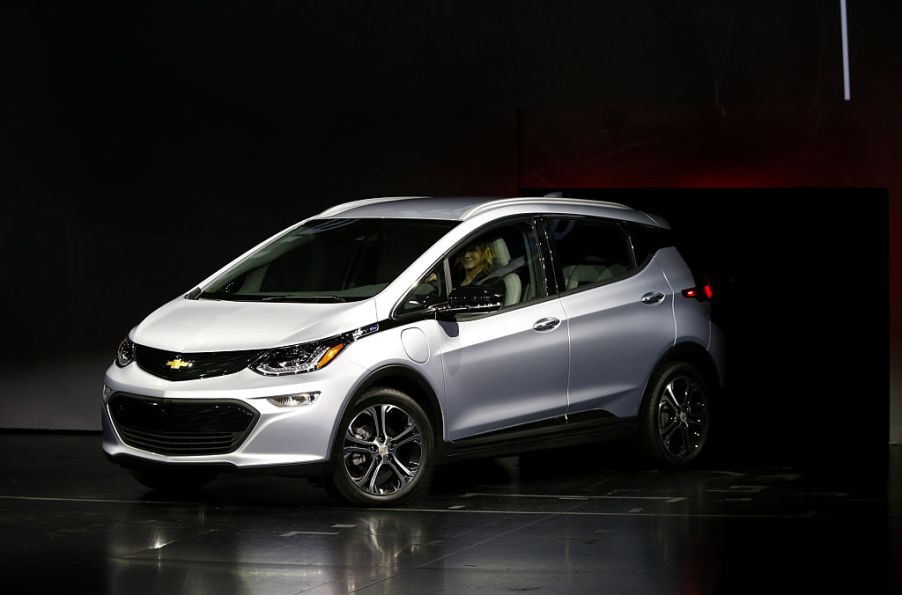
Chevrolet Bolt vs. Hyundai Kona Electric: The Important Features That Set These Cars Apart
Electric vehicles have grown in popularity, sales, and quality. More and more people are turning to economical and environmentally-friend EVs, helping to create a growing selection of electric vehicles offered at an affordable price. The Chevrolet Bolt and Hyundai Kona Electric are two EVs among this growing group. With the growth in the EV market, it can be hard to understand the differences between your options.
Both the Bolt and Kona Electric boast the ability to travel at least 250 miles on a single charge and come at an affordable price. So what do the experts have to say about these two affordable EVs? When stacked against each other, which one comes out on top?
Chevrolet Bolt: the pros and cons
The Chevrolet Bolt offers affordability and decent range, with an EPA-rated range of 238 miles on current models. But the new 2020 Bolt received some changes that increased that range to 259 miles. And even though EVs tend to be heavier than your typical car, the Bolt can still hit 60 mph in around 6.8 seconds.
The battery’s position under the car’s floor makes the Bolt keep a lower center of gravity, help it hug corners and turns more. The Bolt also comes with “Regen-on-Demand” technology, according to Cars.com, which uses regenerative braking and a lever-like paddle behind the steering wheel to reduce the speed of the Bolt drastically. Controls within the Bolt are easy to use and impressive LED headlights come standard.
Its 60 kWh battery is great for good range, but it takes up to 10 hours to fully charge. The Bolt’s seats lack quality and comfort, as well as adjustability options. That lack of quality seems to be seen throughout the cabin, with no offered navigation system, flimsy accents, and, lack of standard safety features.
On the road, the Bolt’s suspension doesn’t seem to handle bumps very well. Drivers also complain about the Bolt’s odd, electronic gear selector, which requires unusual motions to switch the Bolt into reverse. Compared to other EVs, the Bolt’s warranty is also lackluster, offering a three-year/36,000 mile basic warranty, five-year/60,000 mile powertrain warranty, eight-year/100,000 mile battery/electronics warranty, and six-year/100,000 mile roadside assistance coverage.
Hyundai Kona Electric: the pros and cons
Just like the Bolt, the Hyundai Kona Electric has a low center of gravity, so it’s fun to drive. According to Car and Driver, it also has an impressive range of 258 miles on a single charge.
Steering and acceleration are responsive in the Kona Electric, hitting 60 mph in 6.6 seconds. The Kona Electric’s cabin features easy-to-use controls, a great infotainment system, and quality-made accents. Its seats are also comfortable and come with adjustable settings.
A variety of safety features come standard with the Kona Electric, like automatic emergency braking, front collision warning, and lane-keeping assist. Drivers get a great warranty with the Kona as well, with a five-year/60,000 basic warranty, lifetime battery warranty (for first-time Kona owners), seven-year/unlimited miles rust-through warranty, and a five-year/unlimited miles roadside assistance coverage.
The Kona’s battery is slightly larger than the Bolt’s at 64 kWh, taking more than nine hours to charge fully. While the suspension helped zip around corners, uneven pavement makes the ride feel choppy. Road tests found the Kona Electric’s LED headlamps to be lacking, providing uneven light and poor seeing distance with low-beams.
And even though the rear seats can be dropped for more cargo space, the Kona Electric doesn’t offer as much interior stowing space as competitors. The Hyundai Kona Electric’s biggest drawback? It isn’t available in every state.
Bolt vs. Kona Electric: who wins?
As experts in the industry, Consumer Reports evaluates and drives every car put on the road. After spending time doing research on both vehicles and weighing the pros and cons, Consumer Reports has an opinion on which EV will take home the trophy.
While both the Bolt and Kona Electric offer a variety of benefits, the Kona Electric scored higher overall in all of Consumer Reports’ testing and surveys. According to Consumer Reports, the Kona Electric receives higher scores for reliability, comes standard with more safety features, and offers great customer satisfaction.


